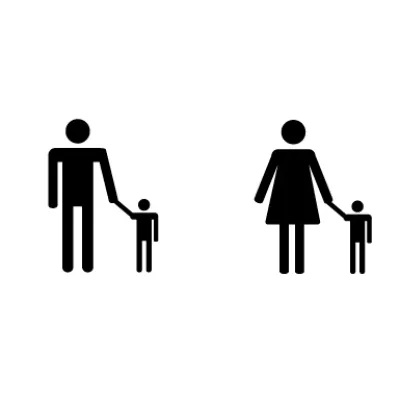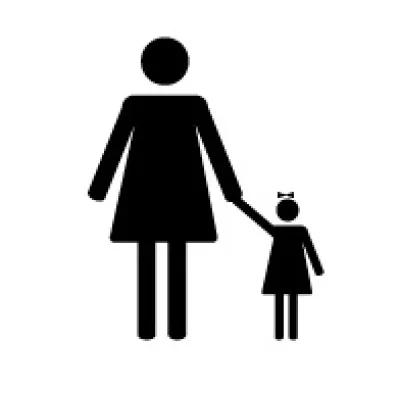Georgia Child Custody Lawyer
Child custody disputes are not just legal battles, they shape your child's future and well-being. These cases require more than legal knowledge; they demand compassion, strategy, and a deep commitment to securing the best outcome for your family.
At Meriwether & Tharp, we go beyond legal representation, we advocate for your child's best interests. Our team is dedicated to turning conflict into clear, fair solutions, helping families move forward with confidence.

Why Families Trust Us
Comprehensive Legal Expertise
- Tailored Custody Plans- We craft customized custody arrangements that address both physical and legal custody to fit your family's unique needs. Seamless
- Legal Support - From initial agreements to modifications, we handle all court documents with precision and care.
- Parental Rights Advocacy - We protect your ability to make crucial decisions regarding your child's education, healthcare, and upbringing.
Child-Centered Approach
Georgia courts prioritize the best interests of the child, considering factors like family stability and parental cooperation. We build strong, well-documented cases that highlight your commitment to your child's well-being, demonstrating your ability to provide a stable and nurturing environment.
Support at Every Step
- Co-Parenting Guidance - Navigate communication and shared parenting with confidence.
- Courtroom & Negotiation Preparation - Be fully prepared for hearings, mediation, or settlement discussions.
- Solutions for Life's Changes - Assistance with relocation, holiday schedules, and summer parenting plans.
Let Meriwether & Tharp be your trusted ally in securing a custody arrangement that supports your child's happiness and stability.
We are Your Source for Child Custody
With a huge library of resources that covers every aspect of child custody from start to finish...
Major Catagories of Child Custody Decisions
While most people usually refer to child custody generally as if it was only one thing, the law looks at child custody in a much more nuanced and detailed way. From a high-end point of view, the court divides custody into two independent items:

Physical Custody
How time is divided with a child
-
The general pattern for who has time with a child.
-
Summer Visitation
-
Holiday Visitation

Legal Custody
Who has final say-so regarding decision related to a child
-
Health Care
-
Education
-
Extracurricular Activities
-
Religion
How Georgia Courts Determine Custody: The Best Interest of the Child Standard
When parents cannot agree, Georgia courts make custody decisions based on one guiding principle: the best interest of the child standard. This is not just a phrase; it's a legal framework defined by the child custody laws in GA, specifically O.C.G.A. § 19-9-3. This statute requires judges to consider a comprehensive list of factors to determine what will best promote the child's welfare and happiness. Our attorneys are deeply familiar with these factors—from each parent's ability to provide a stable home to the child's own wishes if they are of a certain age - and we build our cases around demonstrating why your position aligns with your child's best interests.
Crafting an Effective Georgia Parenting Plan
In every Georgia custody case, the law requires a detailed Parenting Plan. This is the single most important document, as it becomes a legally enforceable court order that governs how you will co-parent. A successful plan must meet the Georgia parenting plan requirements, clearly outlining specifics such as:
A day-to-day and holiday visitation schedule.
How decisions about education, healthcare, and religion will be made (legal custody).
Transportation arrangements between the parents.
How you will resolve future disagreements.
Our lawyers help you create a comprehensive and practical plan that anticipates future challenges and protects your child's stability.
Experienced Georgia Child Custody Lawyers Ready to Help
We understand that child custody disputes are more than just legal procedures—they are about the future of your family. The uncertainty and conflict can be overwhelming. The team at Meriwether & Tharp is here to provide not only expert legal representation but also the strategic guidance and compassionate support you need to navigate this difficult time.
We have years of experience in Georgia courtrooms, from Atlanta to the surrounding counties. We know the law, we know the local courts, and we know how to build a case designed to protect your parental rights and secure your child's well-being.
Talk To A Child Custody Lawyer!
Your Georgia Child Custody Questions Answered
Q What is the typical child custody process in Georgia?
While each case is unique, the process generally follows these steps:
Filing a Petition: One parent initiates the case by filing a legal complaint for custody.
Temporary Hearing: The court may hold a short hearing to establish a temporary custody arrangement while the case proceeds.
Discovery: Both sides exchange information and evidence relevant to the case.
Mediation: Most Georgia courts require parents to attend mediation to try and reach a settlement agreement.
Trial: If no agreement is reached, a judge will hear evidence from both sides and issue a final order based on the child's best interests.
Q Can a father get full custody in Georgia?
Absolutely. Georgia law is gender-neutral. Courts do not favor mothers over fathers. The decision is based entirely on which parent is better equipped to meet the child's needs and provide a stable, loving environment. We have successfully represented many fathers in securing primary or sole custody.
Q At what age can a child choose who to live with in Georgia?
According to Georgia law (O.C.G.A. § 19-9-3(a)), a child who is 14 years of age or older has the right to choose which parent they wish to live with. A judge will generally honor this choice unless the chosen parent is found to be unfit. The preference of a child between the ages of 11 and 13 will also be considered by the court, but it is not binding.
Q How much does a child custody lawyer cost in Georgia?
The cost varies significantly based on the complexity of your case. Factors include whether the case is contested, the level of conflict between the parties, and the amount of discovery required. Most attorneys work on an hourly basis and require an initial retainer (a deposit). At Meriwether & Tharp, we believe in transparency and will discuss the potential costs and our billing structure during your initial consultation.

 Download our Custody Guide
Download our Custody Guide 






